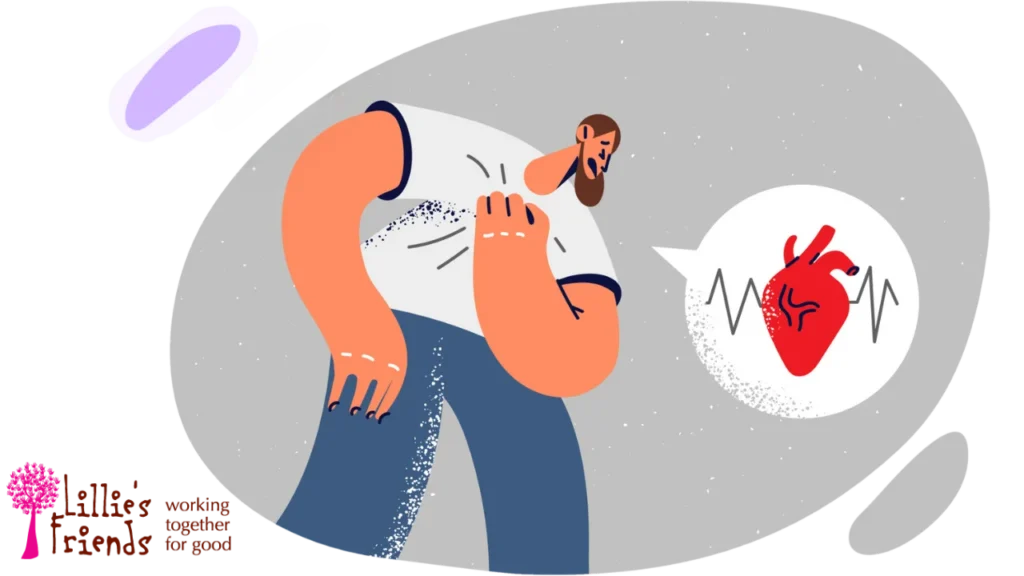How to Handle Anxiety-Related Fast Heartbeat from Lillies's blog
Heart palpitations, another name for rapid heartbeat, are a medical disorder where the heart beats or raced too quickly for a variety of reasons, including anxiety. The normal heart rate is between 60 to 100 beats per minute , but when a person has anxiety-related heart palpitations, their heart rate increases to above 100 beats per minute.
According to a recent research, at least one in four adult Americans over 40 have irregular heartbeats, which is a prevalent cause of heart palpitations. These include heart rates that are either too high or too low.
Primary Heart Palpitations CausesHeart palpitations may be caused by many reasons in patients , such as:
- Stress, anxiety, and panic attacks
- The menopause
- Vigorous exercise
- Low blood pressure
- Drinking too much alcohol
- A time or pregnancy
- Reduced quantities of red blood cells (anemia)
- A drop in blood glucose levels
- Unusual electrolyte levels in the body
- Certain drugs, such as coffee and stimulants
- Systemic illness caused by thyroid hormones
- Lack of sleep (may result in morning heart palpitations)

Anxiety is one of the most frequent causes of heart palpitations, while there are many other potential reasons as well, including those listed above.
What Is a Heart Palpitation Caused by Anxiety?Heart palpitations and anxiety usually go hand in hand. Heart palpitations may sometimes manifest as a sign of depression.
Heart palpitations caused by worry may cause a person’s heart to race, flutter, or miss a beat. The ears, throat, or neck all have a hammering sensation from the heart. After an anxiety episode, this is how people usually feel, however palpitations may also be brought on by extreme enthusiasm.
Here’s a quick rundown of how this procedure works: The autonomic nervous system (ANS) is impacted by anxiety, which sets off the fight-or-flight response . This speeds up breathing, heart rate, and blood pressure in order to enable quick blood flow to the body’s other organs.
Be aware that having bipolar illness, anxiety disorders, or other mental health issues may influence how a person’s body responds to stressful circumstances.
When Heart Palpitations Should Concern YouPatients who have palpitations due to worry may not need continuous monitoring since these episodes are often not alarming. The majority of heart palpitations are transient in nature, often ending within minutes, hours, or even seconds following the first anxiety-inducing event.
Nonetheless, there are times when a patient has to be concerned about heart palpitations. They may cause significant worry, for instance, if they indicate arrhythmias , which are irregular heartbeats. If they are accompanied by any of the following symptoms, they may also be reason for concern:
- The individual has lightheadedness or vertigo
- Constantly gets headaches
- Has discomfort in the chest
- Loses consciousness during palpitations
- Abruptly feels exhausted and out of breath
If someone has diaphoresis (extreme sweating), discomfort, stiffness in the neck area, shortness of breath, or a nervous sensation in the chest, they should get medical help right once.

The Wall